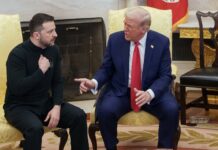
This week, leaders of the Southern African Development community (SADC) met in Harare for the 44th Ordinary Summit of SADC Heads of States and Government. This summit in Harare comes around one year after the controversial 2023 Zimbabwean Presidential election. The election in Zimbabwe had been marred by accusation of electoral fraud and voting rigging by the ruling ZANU-PF party, which has been in power since Zimbabwe’s independence in 1980.
Such a scenario that played out in Zimbabwe is not a rare occurrence in the country, or in many other African nations. Ruling parties are regularly accused of election rigging. In all honesty, to call many of these events “elections” does not even reflect the reality on the ground. In numerous instances, the so-called “elections” are merely a theatrical spectacle staged by the ruling parties for global audiences.
Most African regimes understand that according to the current international order, outright dictatorships are looked down upon. So in order to gain international legitimacy, many regimes put on a performance every few years, pretending to hold elections. However, the results of these so-called “elections” have often been decided months, if not years, in advance. There is never really any question about who will come out on top.
To make the election seem more believable, in some cases, African regimes may allow opposition figures to gain a certain small percentage of the vote share, but never enough to really pose any kind of challenge to their power. In other cases, the fact that the elections have no real legitimacy are made obvious to everyone involved. Such as the recent Rwandan elections, where Paul Kagame was reportedly “re-elected” with a whopping 99.18% of the vote.
Most of the time, when these pretend elections take place, it is almost always international observers and rights organisations that raise concerns about the integrity of the electoral process. It is an incredibly rare occurrence for African leaders to condemn or even raise any kind of concerns when these so-called “elections” are held. In fact, in many cases, African leaders will be the first to congratulate other regimes on their “re-election.”
However, after the election in Zimbabwe, we witnessed a rare rebuke from the Southern African Development Community on the 2023 election in Zimbabwe. SADC had stated that elections in Zimbabwe did not meet the principles and guidelines governing the conduct of democratic elections, and refused to endorse the election. Although their position only confirmed what many have already known, this rare rebuke by SADC dealt a major blow to the legitimacy of the ZANU-PF government.
However, one year later, here we are at the 44th SADC summit of the Heads of States and Government, that is being held in Harare, with Emerson Mnangagwa, assuming the SADC leadership. The man who, according to SADC’s own words, won an election that did not conform to democratic principles, has just been given the leadership position of the Southern African Development Community.
Not only is he assuming the leadership, Mnangagwa had the honour of having Southern African leaders as his personal guests in Harare, over the course of the summit. If their rebuke of the electoral process of the 2023 election dealt a blow to the ZANU-PF’s legitimacy, this action by SADC effectively gives a rubber stamp of approval to the current Zimbabwe regime.
Moreover, this comes around two months after Jameson Timba, the interim leader of the biggest opposition party in Zimbabwe, was arrested by security forces along with other opposition members and activists. The Zimbabwean opposition are truly the ones who are worst affected by the action by SADC leaders. Their years of hard work and sacrifice, advocating for greater democratic reforms, are effectively being de-legitimised by SADC leaders attending this summit.
While this action is extremely disappointing, it is certainly not unexpected. The reality is that, even if they wanted to, African leaders could not even criticise the electoral processes of their counterparts in neighbouring countries. Because if they did, then they know they would be called hypocrites because of the electoral processes in their own countries as well. The reality is that most African nations are not democracies, so many African leaders know they have no leg to stand on when it comes to commenting about the democratic processes of other nations.
African regimes are all essentially running an unspoken quid-pro-quo system, where neither of them ever acknowledge their electoral misdeeds, in order for all of them to maintain their grip on power. The amount of power, wealth, and status gained by African leaders in positions of authority is so great, therefore they all have a vested interest in maintaining their positions. So none of this should really come as a suprise to anyone.










